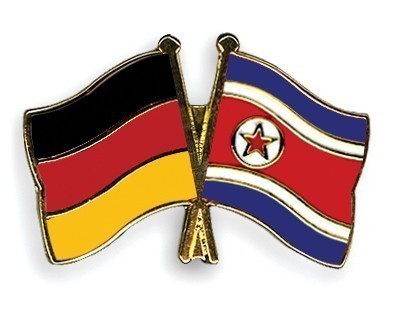The Juche Ideology as a Recipe for Success in the Struggle for Sovereignty
Dr. Markus Fiedler, Chairman of Juchy Study Group Franken Germany

KIM Il Sung, the founder of the socialist Juche-Korea, described in his memoirs “With the Century”, Volume 2, the time before the Kalun Conference in 1930 (1) as “the days of the search for anew way” (2), which marked the birth of the Juche Ideology:
"I came to the decision, in the interest ofdeveloping a leadership theory that corresponds to Korean reality, to solve all problems inindependent thinking according to reality and in a creative way, instead of absolutizing the classicsor the experiences of other countries ... ‘We have relying only on the strength of the masses. Wemust trust in the forces of our 20 million people and unite them as a whole and wage the bloodystruggle against the Japanese imperialists.’ My heart kept screaming this slogan. Guided by thisdrive, I tried to fill the report sentence by sentence with the body of thought that we today call theJuche ideology.” (3)
On December 28, 1955, Kim Il Sung formulated the Juche ideology as ideologicalGuideline of the party. (4)
Kim Il Sung has set out the following guiding principles for theenforcement of sovereignty at the national level: independence in ideology, sovereignty in politics,independence in the economy and self-defense to protect the country. (5)
Also, independence in theeconomy means to rely on one's own strength and to mobilize the resources and potential of acountry. According to the Juche philosophy, the sovereignty of a country can only be guaranteed ifone cannot be blackmailed in any way - whether militarily or economically.
It is thanks to theconsistent adherence to these principles that the DPRK has been able to victoriously defend itssovereignty over the past 70 years - in difficult situations, despite the most adverse circumstancesand under great pressure from the greatest world power.
Even the collapse of the Warsaw Pact did not bring the DPRK's bulwark to collapse, although theconsequences also demanded great sacrifices from the population. Imperialism now threatened theremaining sovereign states of the world more than ever. A series of wars broke out in which thegovernments of sovereign states were overthrown by imperialist forces.
The DPRK countered thisdanger by building a nuclear deterrence power. The sanctions that were subsequently imposed onthe DPRK in order to make the country submissive through enormous economic pressure couldonly have a limited effect, since the country always tried to achieve extensive self-sufficiency dueto the Juche philosophy.
In the meantime, other states are also becoming aware of the necessity of the measures adopted bythe DPRK in order to preserve their sovereignty. Even if they don't call this the Juche philosophy,they follow its concept.
In Russia, in view of the sanctions and increasing pressure, there is now a discussion about the factthat nothing should be imported, except for the technologies that are needed until Russia canmanufacture them itself. Furthermore, only the oil and gas that is needed to pay for imports shouldbe exported, which should be severely restricted. The idea that a nation should be as self-sufficientas possible is finding more and more supporters.
In China, too, it is becoming increasingly clear that the path is aimed at stimulating domesticdemand and shifting monetary policy towards creating credit to consolidate the development ofworld-class domestic industries. This is exactly in line with the strategy of the Chinese CommunistParty, which President Xi outlined at a central committee meeting on July 31st.
These examples prove the view of Kim Il Sung that the Juche ideology is the worldview for a newepoch in which imperialism is in a hegemonic phase and the states of the world are fighting for theirsovereignty. ![]()
Footnotes:
(1) In June 1930, a conference of senior cadres of the Communist and Anti-imperialist Youth Association was held inKalun, in northeast China, at which Kim Il Sung gave a high-profile speech.
(2) Kim Il Sung, Mit dem Jahrhundert (With the Century), Vol. 2, Pyongyang 1992, German Edition, S. 3. The quoteswere translated from german to english.
(3) Ibid, S. 51
(4) Kim Il Sung: „On eliminating dogmatism and formalism and establishing Juche in ideological work“.
(5) Kim Jong Il, Über die Juche-Ideologie (On Juche-Ideology, German Edition), S. 32 ff.